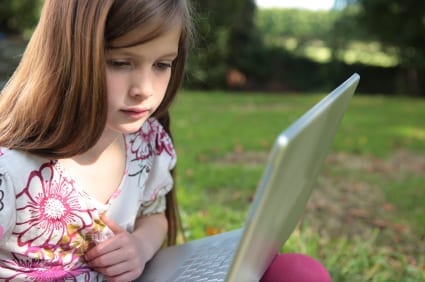 Your 5th grader arrives home from school and tells you that John (and you get a nervous feeling in your belly because John is the boy who picks on her and is known as the class ‘Bully’) took a picture of her with his phone and said he is going to take her clothes off in the picture then post it on Facebook.
Your 5th grader arrives home from school and tells you that John (and you get a nervous feeling in your belly because John is the boy who picks on her and is known as the class ‘Bully’) took a picture of her with his phone and said he is going to take her clothes off in the picture then post it on Facebook.
You are horrified. This creep is tormenting your daughter (and you’re thinking: Is he really capable of doing that?). You keep a poker face so the dialogue with your daughter can continue. Your daughter asks you if he is really able to do that. In the moment – you aren’t really even sure – but the real issues at hand is the threat and the potential fallout from this type of cyber bullying behavior. With a little googling you discover that with today’s technology the answer is YES, this little #$%@** can change the picture anyway he wants to and do with it what he likes. If that means posting on Facebook then he can.
Our question is: What is this 11 year old doing on Facebook? This is one of the reasons why there is a recommended age for users of Facebook. Young children are not as capable of seeing and understanding consequences to their actions. They are unable to utilize social networking safely and are often unsupervised in the process -opening up potentially awful results for kids like the ones described above -victim and perpetrator.
Your child, (who does not have a Facebook account), says she doesn’t want you to take it to the school administration, for fear of increased retaliation from John. (What will happen to this world if we don’t stand up to protect ourselves and our loved ones? Unfortunately, this child’s reaction is an all too accurate description of why children don’t report bullying in the first place – fear of increased retaliation).
So how does a parent handle this? How can we protect and teach our children safe practices in this digital age? And the main question we want to tackle today -Why is a 5th grader, age 11, on Facebook in the first place? How are we as parents feeding into a system that is not safe or in the best interest of our children?
Many parents we have spoken with say, “I let my 9 year old on Facebook because I don’t want my child being “left out” socially. All of their friends are on it.” Is having your child keep up socially worth the safety issues that can ensue from being on social networking sites when they are not mature enough to understand the ramifications?
If all of these parents would speak to each other instead of conforming to adult peer pressure, many would discover that other parents are like minded and do NOT want their kids on Facebook just yet either. Maybe the parents could all agree – let’s wait till, say, 8th grade -when they are better able to make safe decisions, use it for what it is intended, and we as parents will have had more time to set proper guide lines with them.
When we allow underage kids onto sites such as Facebook – we are setting them loose on line to exposure to real life threats, child predators, inappropriate content and increased vulnerability to being involved in cyber bullying. We are putting our children in an unsafe situation.
The other point is by allowing our children to lie to open up a Facebook account, we are not sending them a good message. It’s okay to lie? It’s okay to lie about some things? According to the Pew Research Center’s Internet and American Life Project, 38% of 12 year olds in the U.S. were using social networks in 2009. Perhaps it seems benign, right now, but the next step…just around the corner could be them lying about underage drinking.
Back to our story. Where does John, the “bully” from our story fall into this issue? He has a Facebook account, is underage, and is making verbal threats to others. Do you think his parents know about his account? Should they be notified of his behavior? Should this be parent to parent or should the school get involved? We want to hear your thoughts as the reader – what would you do? Is your underage child using Facebook? What guidelines, if any have you set?
If you have an underage child on Facebook – and this pertains to all ages of our kids on Facebook – We at KidSafe Foundation, strongly recommend that as part of the privilege and responsibility for using the site is that you be “friends” with your child. This gives you an open door into what he/she posts, language used by them and others, unfamiliar friends, how much personal info they are sharing and choices they make. Parents need to set guidelines and boundaries with their children and let them know that the privilege of having a Facebook account comes only with complete and open access to you. You should have ongoing discussion about “friends” on Facebook, posts and anything else you feel is necessary to discuss.





